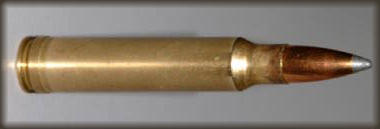

 The Accurate Reloading Forums
The Accurate Reloading Forums  THE ACCURATE RELOADING.COM FORUMS
THE ACCURATE RELOADING.COM FORUMS  Rifles
Rifles  Medium Bore Rifles
Medium Bore Rifles  Question for Mauser experts
Question for Mauser expertsGo  | New  | Find  | Notify  | Tools  | Reply  |  |
| new member |
Hi folks, I have a Mauser rifle which has the following markings under the action visible only after taking the action out of the stock M 8,85.9,07.860. 108,49 "B" with a crown "U" with a crown A few other markinngs like S S and 3 under it and some other single alphabets.. Markings on the left of the action if it helps- B and U with crown on top, serial number 88xxx and "9,0 H" Left side "WAFFENFABRIK MAUSER OBERNDORF A/N" Can anyone tell me what he markings under the action mean. Thanks | ||
|
| one of us |
It would appear you have a mauser chambered in 9x57. that's ehat the 9H is. 8,85 and 9,07 are land & groove measurements. B&U are commercial proofs from 1898-1924  Aut vincere aut mori | |||
|
| new member |
Thanks z1r for the information, I was hoping it will tell me something about the year of manufacture. | |||
|
| one of us |
I'm certainly no expert but I believe the SN puts the manufacture in the 20's.  Aut vincere aut mori | |||
|
| One of Us |
Here's some doc I got from Dietrich Apel. " What you would be looking for are maybe the letters B, U, G, N with crowns over the tops of each and the serial number. These were used between 1924 and 1934 with some carrying on through the later years." B = rifle proofed in assembled form. U = final inspection proof. G = sporting firearm with rifled barrel. N = indicates Nitro proofing. (from 1933-1939) Also used on military contract rifles for export. Mine was marked as follows: 2,99 g GBP St m G These marks show 2,99 grams of Gewehr Blaettchen Pulver (military flake powder) and "St m G " Stahl-mantel Geschoss (steel jacketed bullet). Other possible types are "K m G" for Kupfer-mantel Geschoss (copper jacket) and "Bl G" for Blei Geschoss (plain lead bullet). The 108,49 could be the day and year = Apr, 18th 1949 | |||
|
| one of us |
/ | |||
|
| new member |
thanks guys for the information... Alf - It is an H & not an N. Thanks | |||
|
One of Us |
Land .3484", groove .35708". No problem with using .357"-.358" bullets in this one..... "Bitte, trinks du nicht das Wasser. Dahin haben die Kuhen gesheissen." | |||
|
| one of us |
/ | |||
|
| one of us |
108,49 is the "gauge" of the rifle barrel in the system used by Germany from 1892 up to 1912 or so, as adopted from the British proof law of 1868. 108.49 gauge is .350" which was the largest plug gauge, in 0.010" increments, that would fit in the bore. See http://www.germanguns.org/technical.html for the full list of rifle gauge numbers. It's usually easy with all the marks at hand to separate manufacture date to pre- and post-1912, and post-1912 there is often a date code in the form of two short superimposed strings of digits, for instance 324 699 would indicate the 699th entry in the proof house log book of March 1924. Date codes like this are uncommon, but not unheard of, before 1912. The style of the loading mark, like the one shown by richj above, is the best indicator of the 1912 date split. Before 1912 the upper line was a powder charge and the lower line was a bullet type, as: 2,99 g GBP St m G After 1912 the upper line was the bullet type and the lower line was the bullet weight, no mention of powder at all, for instance: K m G 13,5 gr meaning a 211 grain copper jacketed bullet. Since there's no mention any crown-over-N or "Nitro" marks on the rifle in question, and the bore is gauge marked, my bet is that this rifle was built before 1912. (And I've been wrong plenty of times, too! | |||
|
| new member |
Thanks for all the information. Posting a few images.  this mauser has 2 lock screws on the floorplate    | |||
|
| Powered by Social Strata |
| Please Wait. Your request is being processed... |
|
 The Accurate Reloading Forums
The Accurate Reloading Forums  THE ACCURATE RELOADING.COM FORUMS
THE ACCURATE RELOADING.COM FORUMS  Rifles
Rifles  Medium Bore Rifles
Medium Bore Rifles  Question for Mauser experts
Question for Mauser experts

Visit our on-line store for AR Memorabilia

